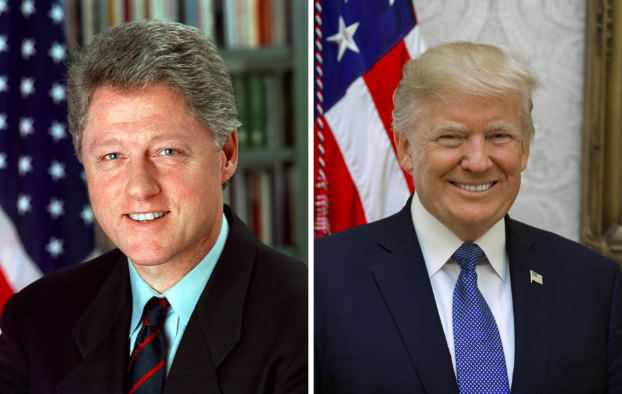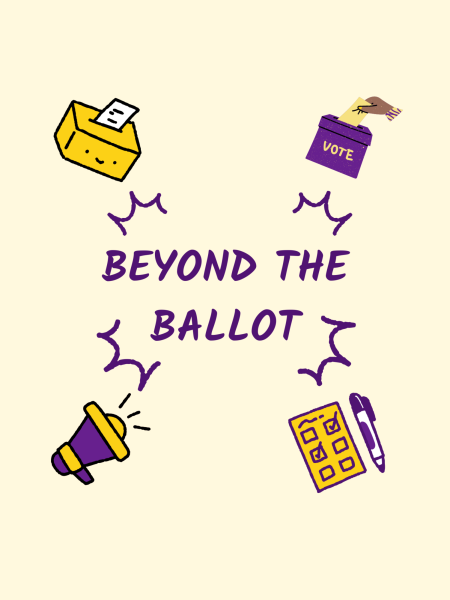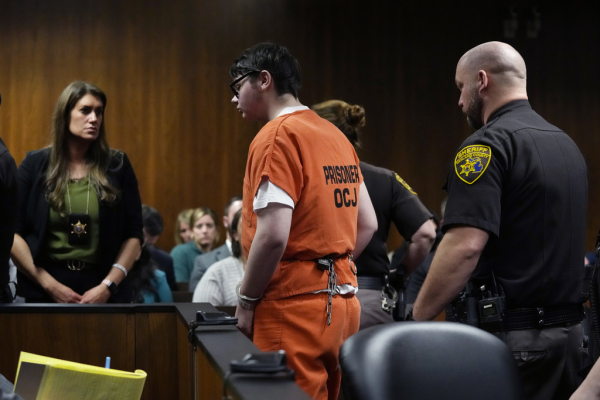Bill Clinton’s Impeachment Began Two Decades Ago. Trump’s Is Much Different
October 8, 1998, was much like today, with growing tones of autumn auburn and fading hints of summer green. Pascack Hills was in session, and restless students were looking forward to Halloween. It was the last year of Seinfeld; the birth year of Google. There was probably a football game the next day, since it was a Thursday; without a doubt, the Cowboys would passionately cheer on their team from the stands.
Oh, and the 42nd President of the United States was being impeached.
Exactly 21 years after the House of Representatives approved a formal impeachment inquiry against President Bill Clinton, America has a different president governing a vastly different world. The Constitution, however, has held up just fine –– in fact, it could cause a president’s impeachment for the third time.
It is 2019, and it has been two weeks since House Speaker Nancy Pelosi opened an impeachment inquiry against President Donald J. Trump. The president is still up for reelection in November 2020, but he now faces what may surmount to be the greatest political fight of his presidency, a fight he has branded as a “witch hunt” but could now poach his grip on the oval office.
As goes any political fight these days, on the surface impeachment is one between the Democrats and the Republicans. The Democrats have a majority in the House, which means they are in control of bringing forward legislation which, with enough votes, is sent to the Senate. The Republicans control the Senate, which means they have the final say on what is sent to the President’s desk for approval. Republican senators are Trump’s firewall; despite his actions, none of them publicly support reprimanding him in any fashion.
This opposition to reprimanding Trump includes saying “no, no,” to impeachment, a process that –– let me be clear –– is not a synonym for kicking Trump out. Impeachment is the only process outlined in the Constitution to charge the president with a crime. If the House of Representatives votes to approve this indictment against the president, the Senate will take the case up in a trial, with Senators serving as jurors who will vote on whether to acquit or convict the president of their indicted crimes. If the president is convicted, they are formally removed from office.
The Democrats now believe it is time to initiate this constitutional process. It’s been three years of President Trump, and recent developments have moved them towards pursuing his impeachment. Most notable of their concerns is a July phone call between Trump and the President of Ukraine, Volodymyr Zelensky. While Americans enjoyed their summers at beaches and bonfires, Trump appears to have spent most of his freezing U.S. military aid to Ukraine unless Zelensky had Ukraine investigate former Vice President Joseph R. Biden, a Democratic candidate for president in 2020.
Democrats’ furor was amplified when the White House released a transcript of the call, which included President Trump asking President Zelensky “for a favor, though” after Zelensky brought up the U.S.’ longstanding support for his country against Russia. The “favor” he described proved media reports of Trump’s demand for a foreign country to investigate Biden.
All of this was uncovered just two weeks ago, when the Washington Post first reported that a whistleblower had submitted a complaint to Congress expressing his concern about the President’s discussions with foreign leaders. Democrats called it “the smoking gun” in a series of questionable actions by the President. Viewing his actions against Ukraine as a threat to national security, House Democrats announced they would begin an impeachment inquiry against the President.
This is, surprisingly, a simple look at the context surrounding President Trump’s potential impeachment. The descriptor “potential” is necessary because, while a majority of House representatives may vote to impeach, or indict, the president, the Republican majority in the Senate will likely acquit him. For the Senate to convict Trump of the articles of impeachment voted on by the House, at least twenty Republican senators would have to vote with all 47 Democrats –– constituting a two-thirds majority.
Overall, the political part of this is pretty similar to President Bill Clinton’s impeachment inquiry, where he was charged with lying under oath. Clinton was ultimately impeached by the Republican-majority House but acquitted by the Senate, thus able to serve the rest of his term. However, the similarities end there. While Trump’s impeachment may very well be collateral damage from a combination of unabashed populism and pure misconduct, Clinton survived his because of a more careful adherence to constitutional norms.
Deborah Horn, a history teacher at Hills, lays out one big difference. “What Bill Clinton did is arguably immoral but had no bearing on government or national security.” But Trump’s actions are clearly connected to both of those, Horn says, along with “corruption and national interest.”
There is some irony in this. In 2016, Trump ran as someone willing to take power to the people from the corrupt elite. His rally cries, the greatest hits of which include “make America great again,” “drain the swamp,” and “lock her up,” clearly resemble how Trump would bring disruptive change one way or the other. His subsequent election was the defining victory of a global rise of populism.
Arguably, President Trump has not fulfilled those promises since then. There have not been laws passed to solve 21st-century problems like the wage gap, systemic racism, and gun violence, though some Americans might see that as Trump’s return to the past. He never locked “her up,” unless he means helping seal the fate of the planet by rescinding environmental regulations (and no, let’s not politicize the change of our climate). And instead of draining the swamp of corruption, he might be impeached because of it. There is merit to an impeachment inquiry if Trump did what he said he did on calls with foreign leaders. It would be a constitutional duty to impeach him, actually –– for national security’s sake.
Clearly, the situation surrounding Trump’s impeachment is of a different nature than President Clinton’s. While Clinton’s impeachment inquiry arose from his lying to investigators about his relationship with a White House staffer, junior Mackenzie Blowers says Trump’s “stems from several things, mainly the whistleblower complaint and the call with Ukraine.”
But wait! “The economy was great under Clinton, and it’s the same under Trump,” Hills student Stephen Schmidt commented. Both presidents did preside over a time of economic expansion, and both did face midterm elections that brought some power back to their opposition, but there is no daylight between the styles of the presidents themselves –– in Schmidt’s words, “the contexts are very different.” For instance, Clinton created a “war room” of advisers and strategists during his impeachment inquiry in hopes of protecting his legacy; Trump’s “war room,” on the other hand, has no walls.
If Trump did have a discernible strategy (spam Tweeting doesn’t count), loyal Republican leadership would be appearing on Sunday morning news shows to defend the president. Rather, Republican politicians are facing the most important questions of their political careers, answered not to a cable newsperson but deflected to their concerned constituents back home. Why doesn’t the President see the immorality of his actions? Why don’t you? Why should I believe what you say, when Trump has asked in public for China to investigate Joe Biden? These are the kinds of questions Americans want and deserve answers to, and unlike Clinton who ultimately came to terms with his actions, Trump looks to remain oblivious to his for the rest of his presidency.
But perhaps the biggest difference between the impeachment inquiry of President Clinton and President Trump is the historical precedent. One thing is true about President Trump’s impeachment: No one knows what is going to happen. History teachers love saying how history repeats itself, but this is either an anomaly or the beginning of a new era in executive power.
“If it turns out Trump was using our financial support for Ukraine, which is critical for us to keep Russia at bay, for his own political gain rather than the benefit of the country, that is a serious problem,” history teacher Doug Goodman said.
There is simply no “pattern” of American presidents breaking norms quite like Trump. America has seen its fair share of abuses of power, from the Revolution to the Gilded Age and from Watergate to the Great Recession and everything in-between, but the misconduct has never been so blatant, so broad, and so concerning that multiple high-profile officials felt it was imperative they report the President’s actions to Congress.
In terms of why it was so imperative, Horn said how “in the United States, we can only investigate people with probable cause, and there are only certain things the government is allowed to do. But when you ask China [for a political favor], they don’t follow any of the rules we follow. They don’t have any of the amendments we have, any due process… so if China is going to spy on [Joe Biden], if they hack his emails, Trump is having them do something we’re not legally allowed to do and letting us have something we’re not legally allowed to have. It’s extralegal.” Trump could have tried to circumnavigate the limits of the law in the United States by having the investigation of an American citizen be completed under the broader limits of a foreign power.
The Watergate scandal is the closest example to the extra legality Horn mentions, where transcripts revealed President Richard Nixon’s obstruction of the investigation into the break-in of the Democratic National Committee headquarters. I’m not going to leap towards any conclusions about the extent of the President’s actions, but I would argue that, based on what has been reported, that Trump’s calls with foreign leaders have the potential to be of a greater danger to national security than Nixon’s obstruction of justice. President Trump himself, not by the work of abettors but in cohorts with political and diplomatic accomplices, repeatedly attempted to “break in” to foreign governments for political purposes. Trump’s White House then appears to have covered it up by hiding the evidence in online servers usually used for the most secret American intelligence.
The transcendence of the diplomatic and political worlds because of Trump’s calls with foreign leaders should be unwelcome by both ambassadors and congresspeople alike, and it largely has. Politicizing diplomacy as a means of soliciting illegal foreign campaign contributions would have much larger historical consequences than President Clinton and President Nixon’s obstructions of justice.
So, you’re asking, if there is no historical precedent for this, then what should I think? What is going to happen?
“There’s going to have to be more concrete evidence,” Goodman added, saying that Republicans at this point would not vote to impeach and remove the president. However, “it’s certainly possible” that there will be enough votes as the inquiry continues. It happened with Nixon, Goodman continued, except Nixon resigned when Republicans told him they had to have dignity and vote to impeach him.
“Trump is just all Trump,” Horn said, and “there’s a lot of Republicans who supported Trump who are made very uncomfortable by this.”
No matter how the messy politics of it play out, I truly don’t want President Trump to have to be impeached. I don’t want the country to be more polarized. But in writing this piece, I recognize the importance of this moment in American history. Like every president, Trump took an oath where he solemnly swore he would faithfully execute the office of President of the United States, and that he would to the best of his ability, preserve, protect, and defend the Constitution of the United States.
President Abraham Lincoln said that “Nearly all men can stand adversity, but if you want to test a man’s character, give him power.” The Constitution gave Trump his power. It has worn his character. It is only if truth prevails, that the Constitution will take his power back.

Jared Mitovich joined the Trailblazer his freshman year as a staff writer. He has helped manage the Trailblazer's social media since his sophomore year, and in his junior year he edited the Opinion section. Now in his final year of high school, Mitovich is looking forward to working with Mackenzie Blowers as Editor-in-Chief along with the entire Trailblazer staff. You can follow him on Twitter at @jmitovich!
Fun fact: Mitovich once met a presidential candidate.
















































